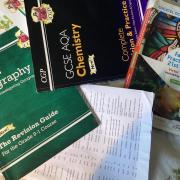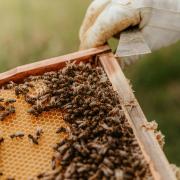
Recently, I participated in a chamber music concert for a community of old people who gather in North London every week to drink tea and eat cake. For me, it was an enchanting experience. I came away feeling not only relieved that my performance had finished, but also that tangible little something which I couldn’t quite explain.
I have since come to identify that feeling as the warmth I felt because I was giving back to my community. In this case, I was using classical music as a medium through which to bring life and warmth into the lives of the elderly.
Loneliness amongst the elderly has been one of the greatest problems facing our community for many years. So why is it that an issue as prominent as this is so often overlooked/outweighed by other things?
Gill Brazier is the chief organiser of a weekly tea for elderly people in North London. When asked whether she believes loneliness is a problem, she responded: ‘Absolutely, loneliness is a huge issue for the elderly. Some of those who attend TeaTime say that it is the only time that they get out in the week.’
The fact is: we will all be old one day. And when that time comes, we will need some reliable and accessible way of remaining in contact with the outer world. It just so happens that this is one thing America does well. When I visited my grandmother’s care home in New Jersey last year, I was astonished and amazed by the proper treatment old people were receiving; not only was there a European film society, but also a photography society and a salsa dancing club(!) And, as if this wasn’t enough, a regular hiking group would take these older people on a walk around the local wilderness so that they could exercise their legs.
It is time the UK take a similar approach, and start treating the second half of life with as much attention as the first. If we do take this approach, we will stop viewing the prospect of getting old as a negative, and may begin instead to view ageing as something exciting- an opportunity to meet new people and try out new hobbies. We must begin to make this change now.
Some people may remark that classical music is only a form for old people; that the younger generation cannot enjoy the same pleasure from it as the elderly. However, as a young person, I insist that this is not at all true. Classical music is one of the most exciting music forms there is. Beethoven’s fifth symphony, for instance, is filled with cheeky repeating patterns and themes that get passed around the orchestra in a way some may even find humorous. In this way, classical music is the perfect mechanism through which to connect to the older generations: the pieces often display the moodiness of teenagers, combined with the power in age that the elderly have to offer.
But music is not the only way of helping to connect to this community. Gill went on to say that ‘Our oldies at TeaTime certainly like music of all types which ranges from a singalong to classical to primary school kids singing Christmas songs. We also do a hymn sing every so often and they love that as it brings back memories of their school days.’ Why don’t you take the initiative? Why not volunteer leading a German cinema club, for example, at your local care home?
To tackle the issue of loneliness, Gill had some suggestions: ‘schools can play a big part in helping here; contacting care homes and other community clubs that have seniors groups to see if they would like visits, music, dance, or even just chatting can make a big difference’.
When asked what she feels the impact of music is, Gill responded nothing more than: ‘it brings generations together’. In a world which is becoming ever more divided, it is now more imperative than ever before to dare to close that gap.
Looking back, I think the shimmery light feeling I felt during the concert was a reflection of this: I finally felt as if my actions were making a difference in the world. And, by using music, (or any other meaningful method), to build a bridge connecting our generation to those before us, so can you.
By Allie Gruber


























